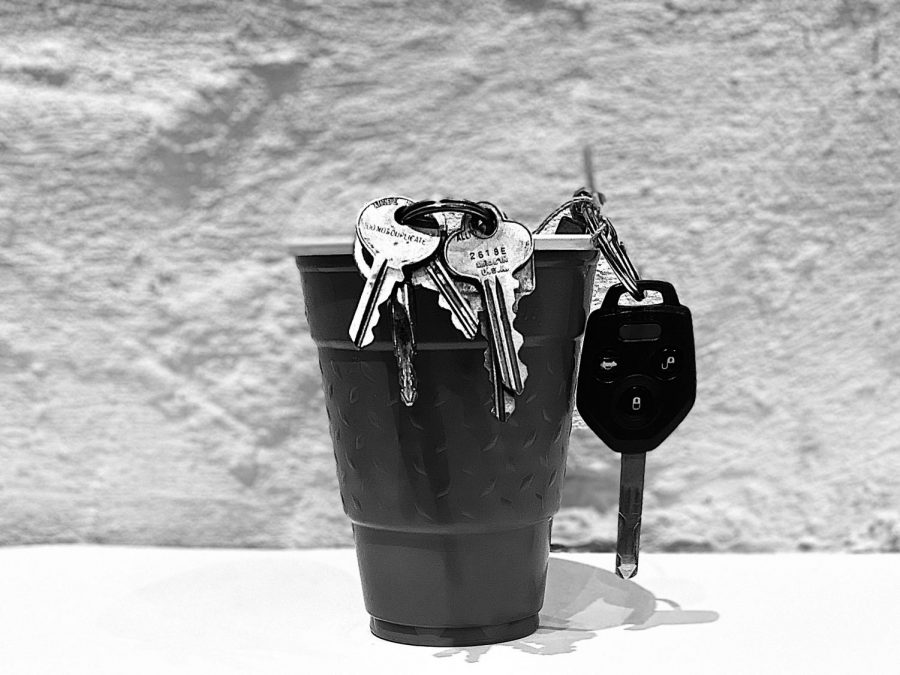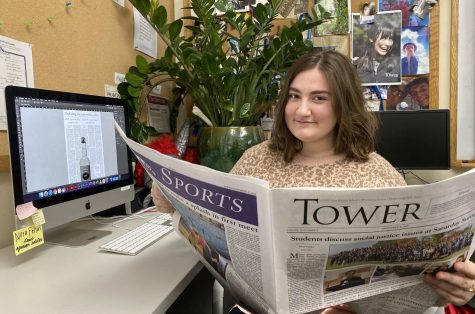It’s 10 p.m. Does Masters know where your children are?
Parents who sign onto the Safe Homes Agreement (SHA) agree to confiscate their guests’ backpacks, water bottles and keys, among other things. They also agree not to allow the use of solo cups at parties. Fellas argues that this agreement imposes too much on students and parents.
October 30, 2019
On Friday, Oct. 4, Interim Dean of Students Jeff Carnevale sent an email to Masters parents announcing the “new” Safe Homes Agreement (SHA), which seeks to create a network of parents who pledge to host alcohol and drug-free, supervised parties for Masters students at their homes. Although labelled a “new” program, a similar program used to operate through the Parent Association, but Carnevale said it hasn’t been in effect for about ten years. This year, Carnevale said that the Dean of Students office revamped the program with the goal to, “create open communication between adults.” Carnevale said in the email that the SHA is designed to enable parents to “easily check to see if the house [their] child will be at is a designated Safe Home.” While I commend the administration’s efforts to ensure students are safe at parties, the specifics of the SHA are troubling.
I will focus on three areas of concern: first, through the SHA, the school is unnecessarily inserting itself into the family and social life of its students; second, the effect of the SHA is that parents will inevitably have to regard their children’s friends with suspicion; and third, parents who sign onto the SHA program might be unwittingly assuming legal liability they would not otherwise have.
In my four years at Masters, I have come to understand that a central element of the Masters ethos is to teach students to advocate for themselves and to encourage parents to stay out of our academic sphere. Given this ethos, it seems reasonable to assume that the school would try to avoid getting involved our social sphere. Yet the SHA directly inserts the school’s administration into our home life.
The SHA outlines commitments and recommendations for parents. Recommendations include: “speak candidly with your child about what your expectations are with respect to drugs, alcohol and other risky behaviors,” “set a curfew” and “let your neighbors know in advance there will be a party.” These recommendations border on the school “parenting” parents, going so far as to insert itself into conversations between parents, their children and even their neighbors.
The SHA also recommends that before a parent sends their kid to a “Safe Home” party, they question the host-parents: “Ask how they plan to handle the situation if someone shows up in possession or under the influence.” Here the school is “parenting” parents on how to “parent” other parents.
My second concern raised by the SHA program is that it will foster a culture of suspicion. For example, the recommendations state: “make regular and unobtrusive visits (every 30 minutes)” and “collect backpacks, bags, purses, keys, water bottles, etc. at the front door as kids arrive.” Not only is this a recipe for a terrible party, but also it encourages parents to regard their children and children’s friends with mistrust. And implicit in the SHA is that parents should actually search the backpacks, bags, purses and the “etc.” of their teenage guests, otherwise how else could parents confirm that there will be no illegal drugs at their party as the SHA requires?
This brings me to a third area of concern: the potential liability assumed by parents. Parents who sign the SHA make several commitments including, “we will not allow the use of illegal drugs in our home or on our property.” It contains similar commitments regarding alcohol, tobacco, e-cigarettes and vaping. And the entire point of the SHA, as outlined in Carnevale’s email, is so that parents “can easily check to see if the house your child will be at is a designated Safe Home.” The SHA states that the sole consequence parents could face if they violate the SHA is their “home being removed from the Masters Safe Home network.” But this ignores the potential liability parents assume by signing the SHA in the first place.
George Davidson, a litigator who specializes in institutional and parental responsibility with over 40 years of experience said that signing the SHA opens parents up to a “separate” liability they would otherwise not have.
If parents permit their child to go to a party only after having confirmed that the host-parents have signed the SHA, and, if, unbeknownst to those host-parents, someone sneaks drugs or alcohol into the party and a child is injured, the host-parents could face civil liability.
It is noteworthy that the SHA warns only once of civil liability — in the case where a parent knowingly lets a child leave their house under the influence. But such liability would exist independently of whether a parent signed the SHA. The SHA fails to warn of the potential liability a parent might be assuming by signing on to it in the first place.
The SHA is presented as “commitments and recommendations,” and at first glance, it would seem these “recommendations” are merely that. Carnevale said that parents should treat this section of the SHA as “pro-tips,” not mandatory standards. However, in his email to parents, Carnevale states that the SHA includes “commitments and recommendations that you will need to abide by to participate in the program.” Similarly, the SHA itself states that by signing, parents “agree to participate in the Safe Homes Program and abide by the guidelines,” a term broad enough to include both the “commitments and recommendations” in the SHA. Davidson said because of this, the SHA is an “ambiguous contract.”
He added that “It’s less clear than it should be for parents to know what they’ve bought into.”
While I applaud the school’s concern for student safety at parties and its goal of facilitating communication between parents, I feel this can be achieved without a legally binding document. I recognize that parents of international students, in particular, may rightly feel disempowered regarding their children’s social activities, and the school’s responsibility to keep track of their children is greater. But again, this can be achieved without parents signing a contract and potentially opening themselves up to liability. Additionally, I believe in parents’ ability to communicate with each other; let’s treat parents like the adults they are.
I wouldn’t want to be at a party where my parents were confiscating or searching my friends’ backpacks or walking in every 30 minutes —but beyond feeling criminalized, I would be worried about the potential liability my parents could face if a teenager made a mistake. I have warned my parents not to sign the SHA, and you should too.




